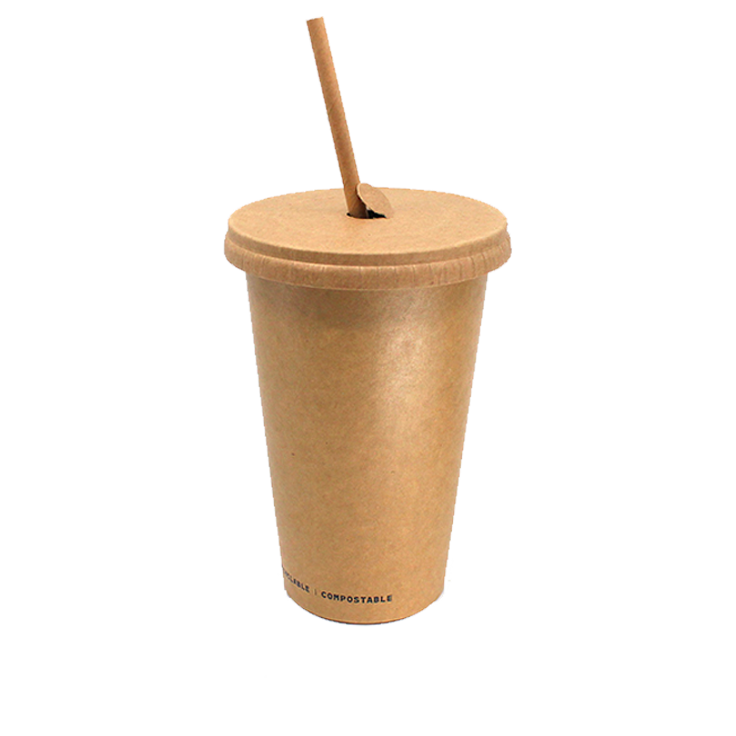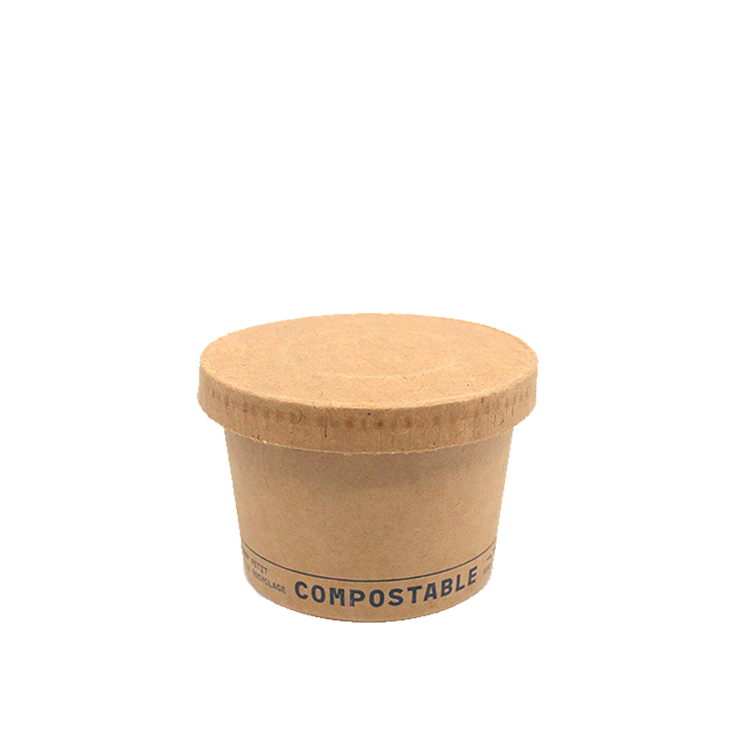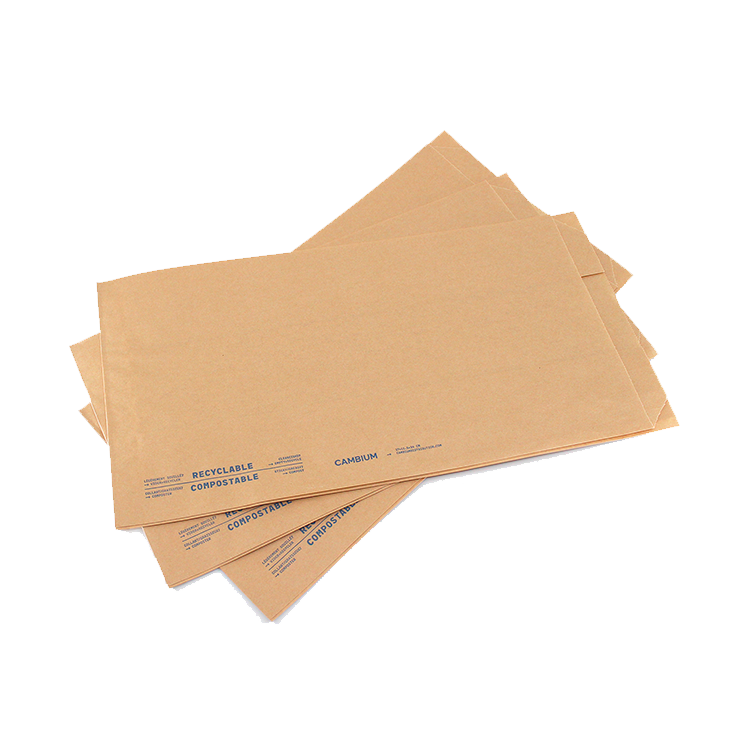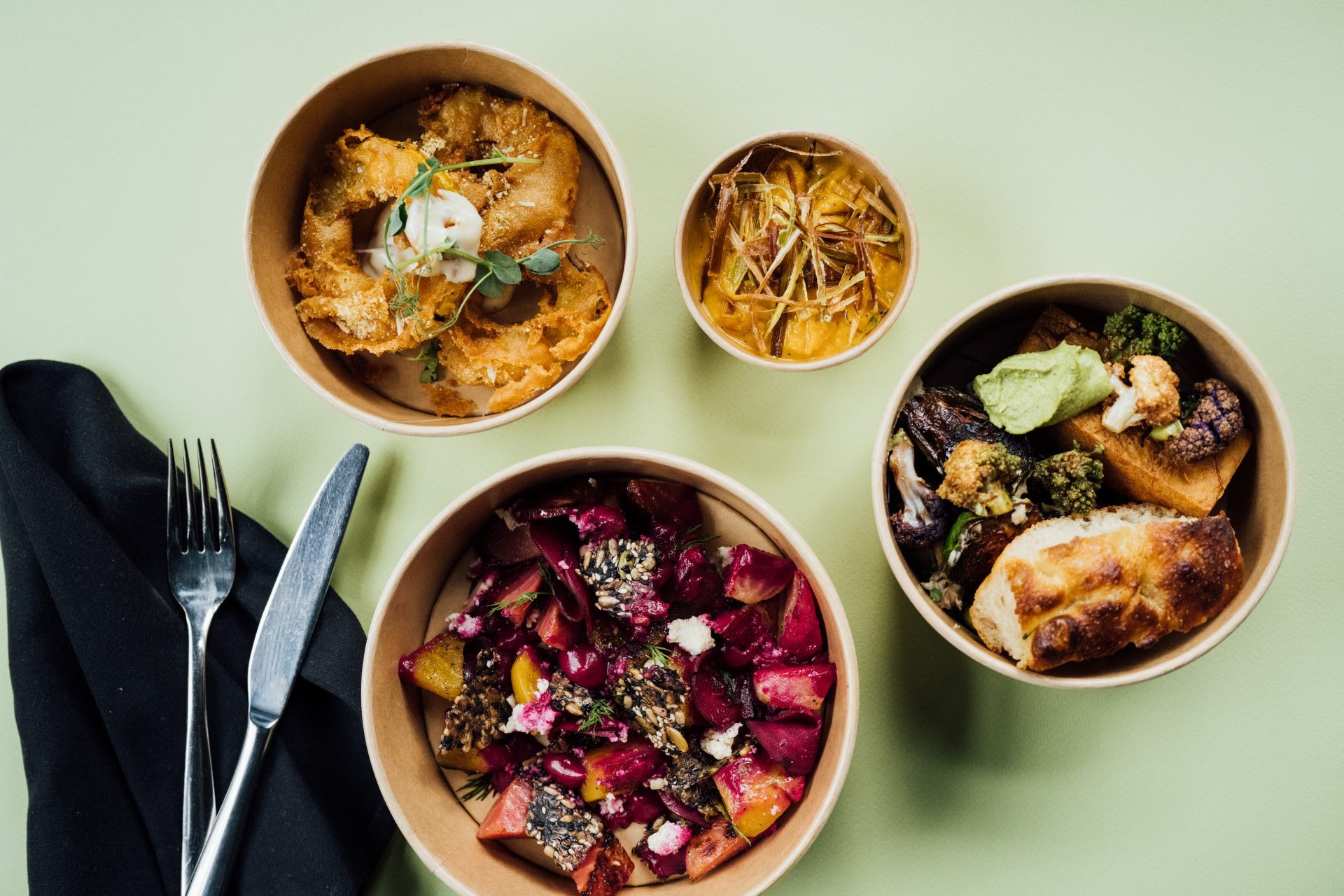
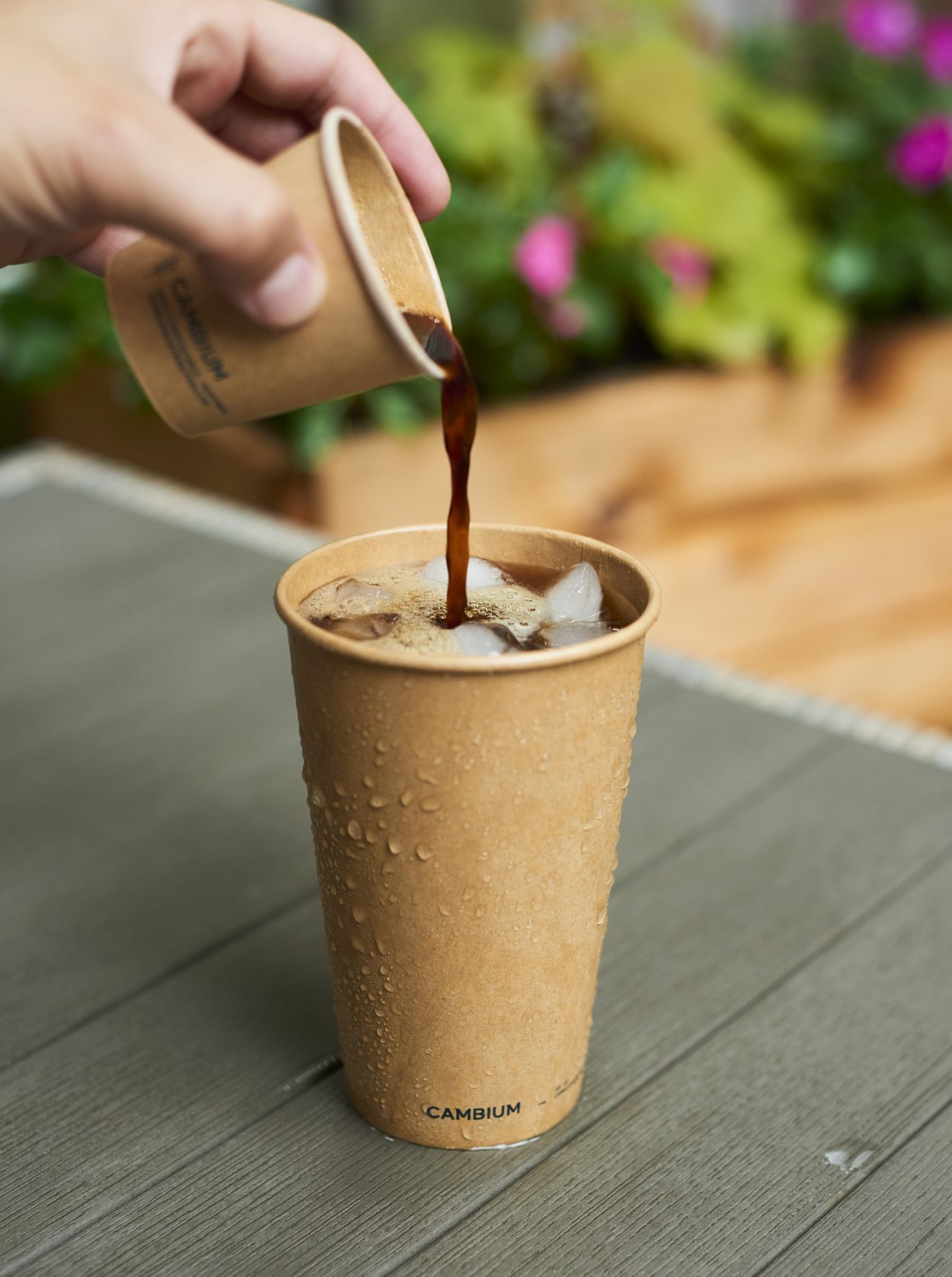
Compost and Recycling
As part of the operation of a restaurant, composting and recycling are essential means to reduce its ecological impact.
Although they are compostable, clean paper and cardboard should be recycled, as this is an efficient method that avoids deforestation by eliminating the introduction of new materials into the production cycle.
If, on the other hand, an object is soaked in food, it can no longer be recycled and must necessarily go to the compost.
Note: Objects contaminated with food sent for recycling, in addition to not being recycled, may corrupt the rest of the materials in the recycling bin. In such a case, they will end up together in a landfill.
Multilayer Containers (cardboard combined with vegetable or petroleum plastic)
In order to prevent liquids from spilling or soaking the carton, many of the take-out containers have the inner faces coated with petroleum plastic.
Be careful, some products falsely bear the initials “recyclable”. Although petroleum plastic and cardboard are initially recyclable materials, once these two materials are combined, the containers then become non-recyclable, since the two materials are inseparable for sorting centers.
Objects lined with PLA vegetable plastic must absolutely be composted and can even be combined with cardboard. However, they cannot be recycled since they are also multi-layered.
What about the energy footprint of composting versus that of recycling?
When the compost is required, it is interesting that it has negligible energy footprint compared to that of recycling.
Our Team

Annie
Legroulx
Director Innovation and Ecodesign
As an industrial designer specializing in packaging eco-design, Annie has spent the last few years supporting companies in their sustainable development initiatives.
With a degree in environmental design from UQAM, Annie has a strong expertise in product design, circular economy, residual materials management and responsible sourcing.

Elie Anthony
Bekhazi
Director of Operations and Sales
Having always had a keen interest in ecological issues, Elie completed a Bachelor of Environmental Science. He then acquired a postgraduate degree in management and sustainable development, then a master’s degree in environmental management. With these skills, he held the position of project coordination for the NGO Environmental Foundation Ltd. and sadly saw the impact of mismanagement of waste and plastic.
Back in Montreal, his ambition to take concrete action to contribute to the environmental cause intuitively led him to co-found Cambium.

Mikael
Lemelin-Brisebois
Director Strategy and Growth
Mikael, who holds a master’s degree in entrepreneurship, intrapreneurship and innovation, is a leader in the implementation of innovative projects. With over 10 years’ experience in the foodservice industry, he brings a unique perspective to his role at Cambium.
By combining his skills in strategic thinking and optimization with his interest in sustainable development, Mikael is a key player in enhancing Cambium’s impact.
Questions ?
Check out our F.A.Q. !
Have a specific request? Write us at info@cambiumdistribution.com or fill out the form below:
